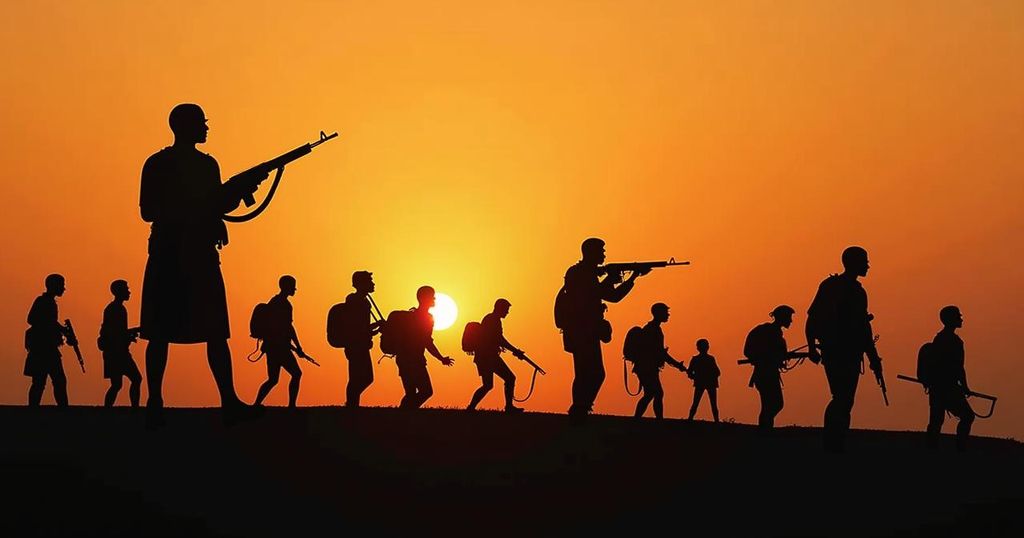Egypt’s Role in the Ethiopia-Somalia Conflict: A Strategic Analysis
Egypt’s engagement in the Ethiopia-Somalia conflict includes arms shipments to Somalia under a defense pact, which has raised concerns about its motives. Analysts suggest that Egypt’s involvement is less about aiding Somalia and more about countering Ethiopia, particularly in the context of the Grand Ethiopian Renaissance Dam. Tensions continue between Ethiopia and Somalia regarding military presence and territorial integrity, as Egypt seeks to establish a strategic buffer against Ethiopia.
The Egyptian government finds itself deeply involved in the escalating conflict between Somalia and Ethiopia, a situation that is causing significant unease across the Horn of Africa. Recently, Egypt dispatched additional arms to Somalia, a move it claims is in accordance with a defense agreement between the two nations. However, this delivery of military assistance, alongside Egypt’s anticipated participation in the African Union Support and Stabilization Mission in Somalia (AUSSOM), has sparked discontent and concern. While Egypt appears to support Somalia, analysts suggest that this involvement is part of a strategic initiative aimed at counteracting Ethiopian power in the region. Central to this conflict is the contentious Grand Ethiopian Renaissance Dam (GERD), which Egypt believes threatens its access to the Nile River’s resources. Simultaneously, Somalia accuses Ethiopia of infringing upon its sovereignty, particularly following an agreement Ethiopia reached with Somaliland—an autonomous region seeking recognition as an independent state. Experts argue that Egypt’s motivations may stem more from geopolitical strategy than a genuine desire to aid Somalia. Asrat Birhanu, a researcher in hydroponics, posits that Egypt’s actions are chiefly about establishing a buffer against Ethiopia’s expanding influence and leveraging the ongoing Nile River disputes. Moustafa Ahmad, a senior researcher at the United States Institute of Peace, emphasizes that Egypt’s primary goal is to isolate Ethiopia rather than bolster Somali security, citing the frustration over the stalled GERD negotiations and ongoing pressures within Egypt to address these issues. Federico Donelli, an international relations professor at the University of Trieste, highlights that Egypt’s involvement is characterized by strategic maneuvering but warns of potential vulnerabilities arising from military involvement in Somalia. Tensions are mounting as Ethiopia asserts that it will continue to participate in AUSSOM, countering Somalia’s calls for the withdrawal of Ethiopian troops, which Somalia accuses of aggression. Meanwhile, there are local protests in the Southwest state of Somalia against such calls for a troop withdrawal, recognizing Ethiopia’s role in stabilizing the region against the Al-Shabaab insurgency, which has seen substantial losses in territory over the past two years.
The involvement of Egypt in the Ethiopia-Somalia conflict is rooted in several complex geopolitical issues involving water rights, territorial sovereignty, and regional stability. The Grand Ethiopian Renaissance Dam (GERD) has become a focal point of contention between Egypt and Ethiopia, exacerbating tensions due to Egypt’s fears concerning its water supply. Furthermore, Somalia’s geopolitical dynamics are influenced by its relationship with Ethiopia, particularly in light of accusations of Ethiopian territorial infringements through its support for the self-declared independent state of Somaliland. This has resulted in Egypt seeking to engage militarily with Somalia as a counterbalance to Ethiopian influence, thereby complicating the security landscape in the Horn of Africa.
In conclusion, Egypt’s involvement in the Ethiopia-Somalia conflict reflects a complex interplay of strategic interests, territorial disputes, and the pursuit of regional stability. While ostensibly aiding Somalia, Egypt appears to be primarily concerned with limiting Ethiopia’s influence in the region. The dynamics at play raise significant considerations for future peace and stability in the broader Horn of Africa, especially given the unresolved issues surrounding the GERD and local security challenges.
Original Source: www.garoweonline.com




Post Comment